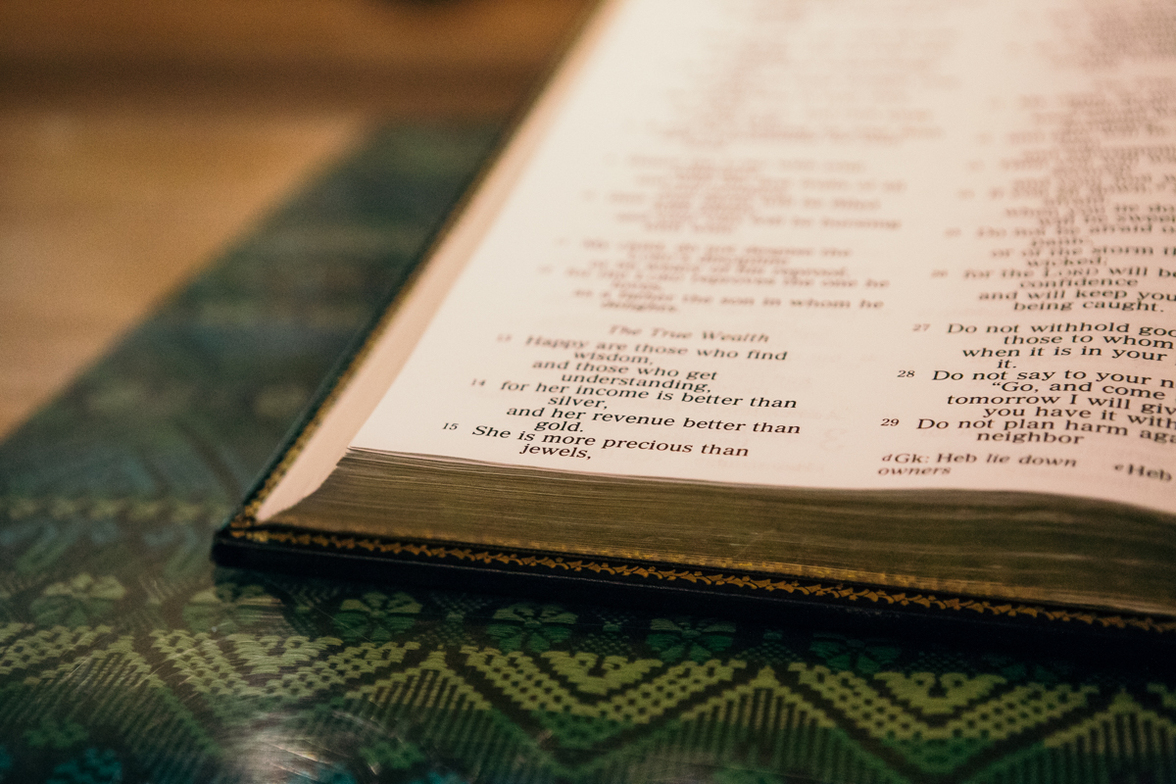Finding Your Perfect Bible

Finding Your Perfect Bible: A Guide to Translations and Spiritual Growth
As followers of Jesus, we're called to learn from Him how to see ourselves, see God, and live accordingly. One of the first and most important tools in this journey is the Bible. But with so many translations available, how do we choose the right one?
What Makes a "Good" Bible?
The defining characteristic of a good Bible is simple: one you'll actually read. No matter how accurate or scholarly a translation might be, if you never open it, it won't impact your life. The perfect Bible collects dust perfectly.
What Is the Best Bible Translation?
There are two parts to this answer:
1. The Best Bible Is Your Bible
The best translation for your spiritual growth is the one you can comprehend and will spend time with. God is big enough to speak to you through any reputable version. For your spiritual growth, it largely doesn't matter which version you read.
Choose a translation that:
- You can read easily
- Uses vocabulary you're familiar with
- You'll actually stick with
Remember, this isn't a lifetime commitment. You can always change versions as you learn and grow. Many believers start with one translation and migrate to others over time as their understanding deepens.
2. The Best Bible Is All Your Other Bibles
Unless you're a biblical language scholar, the best approach for deeper study is to use multiple translations. You don't need to learn Greek or Hebrew—incredibly smart people have already done that work for you.
The easiest way to access their knowledge is to compare different translations of the same text. This is easier than ever with online tools like:
- Bible.com
- BibleGateway.com
- BlueLetterBible.com
- Bible study software like Logos and Accordance
These resources allow you to compare translations side by side and explore specific words and translation choices when needed.
Tips for Choosing a Physical Bible
Keep It Simple
Avoid study Bibles with lengthy notes or special editions targeted at specific demographics. Those notes can become a distraction and a crutch, tempting you to skip to the commentary instead of wrestling with the text yourself.
Keep your study resources separate from your Bible. An added benefit: you're more likely to carry your Bible with you if it's not the size and weight of a cinder block.
Choose Wide Margins
If possible, select an edition with wide margins so you can write down your own notes, comments, and observations. This allows you to engage with the text more deeply and track your own spiritual journey.
What About "Corrupted" Translations?
Some people claim certain translations are corrupt or contain agendas. While there are a few questionable translations out there, this concern is generally overblown.
Jesus promised that the Holy Spirit would "lead us into all truth" (John 16:13). He didn't say "the best literal translation" would do this work. Throughout history, God has spoken to people, led people, and brought revival regardless of which Bible translation they had.
Consider these historical examples:
-
The Apostle Paul likely read from the Septuagint (a Greek translation of the Hebrew Scriptures) that we now know had significant flaws in several places. Yet God used it to speak to Paul.
-
The King James Version was translated in 1611 from the best manuscripts available at that time. We now have older, more accurate manuscripts that weren't discovered until later. Yet God used the KJV for nearly 400 years to call people to Himself and transform lives.
Why You Shouldn't Stress About Translations
If God is real, present, and able to guide us as Scripture claims, then He is big enough to help us grow even if we're using a translation that's less than perfect. He may even lead you to a different translation over time as your understanding deepens.
There's only one thing God can't do: He can't use Scripture to shape your mind and heart if you never read it.
Life Application
This week, take these practical steps toward engaging with the Bible:
-
Choose a translation you can understand and commit to reading it regularly. Don't overthink this decision—just pick one and begin.
-
Start a simple reading plan. Even 10 minutes daily will transform your spiritual life over time.
-
When you encounter a challenging passage, try reading it in 2-3 different translations to gain clarity.
-
Consider writing your observations in the margins or in a separate journal. What stands out? What questions do you have? How might this apply to your life?
Ask yourself:
- What's keeping me from reading the Bible consistently?
- How might comparing different translations deepen my understanding of God's Word?
- Am I relying too much on commentaries instead of wrestling with the text myself?
- What one habit could I change this week to prioritize Scripture in my daily life?
Remember, the power of Scripture isn't in finding the perfect translation—it's in allowing God's Word to transform your heart and mind as you engage with it regularly.